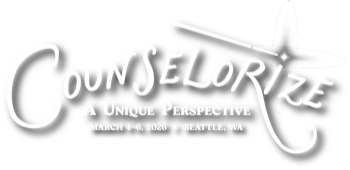


Session Details
Thursday, March 5
Session 1 - 9:30am
[data-S2]
[data-O2] | [data-P2]
[data-T2]
[data-X2] | [data-Y2] | [data-Z2]
[data-AB2] | [data-AC2] | [data-AD2]
[data-S3]
[data-O3] | [data-P3]
[data-T3]
[data-X3] | [data-Y3] | [data-Z3]
[data-S4]
[data-O4] | [data-P4]
[data-T4]
[data-X4] | [data-Y4] | [data-Z4]
[data-S5]
[data-O5] | [data-P5]
[data-T5]
[data-X5] | [data-Y5] | [data-Z5]
[data-AB5] | [data-AC5] | [data-AD5]
[data-S6]
[data-O6] | [data-P6]
[data-T6]
[data-X6] | [data-Y6] | [data-Z6]
[data-S7]
[data-O7] | [data-P7]
[data-T7]
[data-X7] | [data-Y7] | [data-Z7]
[data-AB7] | [data-AC7] | [data-AD7]
Session 2 - 10:40am
[data-S8]
[data-O8] | [data-P8]
[data-T8]
[data-X8] | [data-Y8] | [data-Z8]
[data-S9]
[data-O9] | [data-P9]
[data-T9]
[data-X9] | [data-Y9] | [data-Z9]
[data-AB9] | [data-AC9] | [data-AD9]
[data-S10]
[data-O10] | [data-P10]
[data-T10]
[data-X10] | [data-Y10] | [data-Z10]
[data-S11]
[data-O11] | [data-P11]
[data-T11]
[data-X11] | [data-Y11] | [data-Z11]
[data-AB11] | [data-AC11] | [data-AD11]
[data-S12]
[data-O12] | [data-P12]
[data-T12]
[data-X12] | [data-Y12] | [data-Z12]
[data-AB12] | [data-AC12] | [data-AD12]
[data-S13]
[data-O13] | [data-P13]
[data-T13]
[data-X13] | [data-Y13] | [data-Z13]
[data-S14]
[data-O14] | [data-P14]
[data-T14]
[data-X14] | [data-Y14] | [data-Z14]
Session 3 - 1:10pm
[data-S15]
[data-O15] | [data-P15]
[data-T15]
[data-X15] | [data-Y15] | [data-Z15]
[data-S16]
[data-O16] | [data-P16]
[data-T16]
[data-X16] | [data-Y16] | [data-Z16]
[data-AB16] | [data-AC16] | [data-AD16]
[data-S17]
[data-O17] | [data-P17]
[data-T17]
[data-X17] | [data-Y17] | [data-Z17]
[data-S18]
[data-O18] | [data-P18]
[data-T18]
[data-X18] | [data-Y18] | [data-Z18]
[data-S19]
[data-O19] | [data-P19]
[data-T19]
[data-X19] | [data-Y19] | [data-Z19]
[data-AB19] | [data-AC19] | [data-AD19]
[data-S20]
[data-O20] | [data-P20]
[data-T20]
[data-X20] | [data-Y20] | [data-Z20]
[data-S21]
[data-O21] | [data-P21]
[data-T21]
[data-X21] | [data-Y21] | [data-Z21]
Session 4 - 2:20pm
[data-S22]
[data-O22] | [data-P22]
[data-T22]
[data-X22] | [data-Y22] | [data-Z22]
[data-AB22] | [data-AC22] | [data-AD22]
[data-S23]
[data-O23] | [data-P23]
[data-T23]
[data-X23] | [data-Y23] | [data-Z23]
[data-S24]
[data-O24] | [data-P24]
[data-T24]
[data-X24] | [data-Y24] | [data-Z24]
[data-AB24] | [data-AC24] | [data-AD24]
[data-S25]
[data-O25] | [data-P25]
[data-T25]
[data-X25] | [data-Y25] | [data-Z25]
[data-S26]
[data-O26] | [data-P26]
[data-T26]
[data-X26] | [data-Y26] | [data-Z26]
[data-S27]
[data-O27] | [data-P27]
[data-T27]
[data-X27] | [data-Y27] | [data-Z27]
[data-S28]
[data-O28] | [data-P28]
[data-T28]
[data-X28] | [data-Y28] | [data-Z28]
Session 5 - 3:40pm
[data-S29]
[data-O29] | [data-P29]
[data-T29]
[data-X29] | [data-Y29] | [data-Z29]
[data-AB29] | [data-AC29] | [data-AD29]
[data-S30]
[data-O30] | [data-P30]
[data-T30]
[data-X30] | [data-Y30] | [data-Z30]
[data-AB30] | [data-AC30] | [data-AD30]
[data-S31]
[data-O31] | [data-P31]
[data-T31]
[data-X31] | [data-Y31] | [data-Z31]
[data-S32]
[data-O32] | [data-P32]
[data-T32]
[data-X32] | [data-Y32] | [data-Z32]
[data-S33]
[data-O33] | [data-P33]
[data-T33]
[data-X33] | [data-Y33] | [data-Z33]
[data-AB33] | [data-AC33] | [data-AD33]
[data-S34]
[data-O34] | [data-P34]
[data-T34]
[data-X34] | [data-Y34] | [data-Z34]
Friday, March 6
Session 6 - 9:30am
[data-S35]
[data-O35] | [data-P35]
[data-T35]
[data-X35] | [data-Y35] | [data-Z35]
[data-S36]
[data-O36] | [data-P36]
[data-T36]
[data-X36] | [data-Y36] | [data-Z36]
[data-S37]
[data-O37] | [data-P37]
[data-T37]
[data-X37] | [data-Y37] | [data-Z37]
[data-AB37] | [data-AC37] | [data-AD37]
[data-S38]
[data-O38] | [data-P38]
[data-T38]
[data-X38] | [data-Y38] | [data-Z38]
[data-S39]
[data-O39] | [data-P39]
[data-T39]
[data-X39] | [data-Y39] | [data-Z39]
[data-S40]
[data-O40] | [data-P40]
[data-T40]
[data-X40] | [data-Y40] | [data-Z40]
[data-S41]
[data-O41] | [data-P41]
[data-T41]
[data-X41] | [data-Y41] | [data-Z41]
District School Counselor Leaders Roundtable
All Levels | [data-P41]
The District School Counselor Leadership Roundtable is for district-level counselor leaders to collaborate, align systems, and share strategies that strengthen school counseling programs across Washington state.
Nicole Kaiser | TBA | TBA
Session 7 - 10:40am
[data-S42]
[data-O42] | [data-P42]
[data-T42]
[data-X42] | [data-Y42] | [data-Z42]
[data-S43]
[data-O43] | [data-P43]
[data-T43]
[data-X43] | [data-Y43] | [data-Z43]
[data-AB43] | [data-AC43] | [data-AD43]
[data-S44]
[data-O44] | [data-P44]
[data-T44]
[data-X44] | [data-Y44] | [data-Z44]
[data-S45]
[data-O45] | [data-P45]
[data-T45]
[data-X45] | [data-Y45] | [data-Z45]
[data-AB45] | [data-AC45] | [data-AD45]
[data-S46]
[data-O46] | [data-P46]
[data-T46]
[data-X46] | [data-Y46] | [data-Z46]
[data-AB46] | [data-AC46] | [data-AD46]
[data-S47]
[data-O47] | [data-P47]
[data-T47]
[data-X47] | [data-Y47] | [data-Z47]
[data-S48]
[data-O48] | [data-P48]
[data-T48]
[data-X48] | [data-Y48] | [data-Z48]
Session 8 - 1:30pm
[data-S49]
[data-O49] | [data-P49]
[data-T49]
[data-X49] | [data-Y49] | [data-Z49]
[data-AB49] | [data-AC49] | [data-AD49]
[data-S50]
[data-O50] | [data-P50]
[data-T50]
[data-X50] | [data-Y50] | [data-Z50]
[data-S51]
[data-O51] | [data-P51]
[data-T51]
[data-X51] | [data-Y51] | [data-Z51]
[data-S52]
[data-O52] | [data-P52]
[data-T52]
[data-X52] | [data-Y52] | [data-Z52]
[data-S53]
[data-O53] | [data-P53]
[data-T53]
[data-X53] | [data-Y53] | [data-Z53]
[data-S54]
[data-O54] | [data-P54]
[data-T54]
[data-X54] | [data-Y54] | [data-Z54]
[data-S55]
[data-O55] | [data-P55]
[data-T55]
[data-X55] | [data-Y55] | [data-Z55]
Session 9 - 2:40pm
[data-S56]
[data-O56] | [data-P56]
[data-T56]
[data-X56] | [data-Y56] | [data-Z56]
[data-S57]
[data-O57] | [data-P57]
[data-T57]
[data-X57] | [data-Y57] | [data-Z57]
[data-AB57] | [data-AC57] | [data-AD57]
[data-S58]
[data-O58] | [data-P58]
[data-T58]
[data-X58] | [data-Y58] | [data-Z58]
[data-S59]
[data-O59] | [data-P59]
[data-T59]
[data-X59] | [data-Y59] | [data-Z59]
[data-AB59] | [data-AC59] | [data-AD59]
[data-S60]
[data-O60] | [data-P59]
[data-T60]
[data-X60] | [data-Y60] | [data-Z60]
© 2026 Washington School Counselor Association | Contact Us